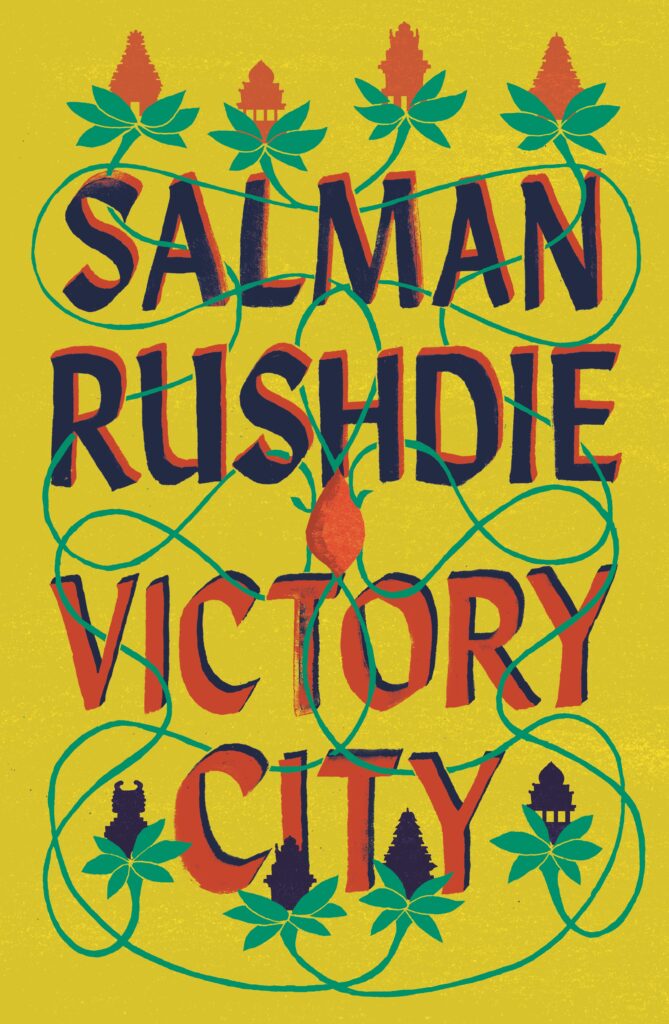
How, it might be asked, can Salman Rushdie’s new novel about a semi-divine sorceress and the city she creates from a handful of magical seeds have anything worthwhile to say about the ‘real’ world? Surely such stuff is just frivolous fantasy?
Such a demand for relevance to everyday life would miss the point: that serious literature, whether it employs the fantastical or the realist mode, uses the unreal to see the real anew.
This point is, crudely speaking, the guiding principle of what I have come to think of as the Rushdian philosophy of literature, which is most distinctly spelt out across various essays in his non-fiction collection, Languages of Truth (2021). As he puts it: ‘For me, the fantastic has been a way of adding dimensions to the real, adding fourth, fifth, sixth, and seventh dimensions to the usual three; a way of enriching and intensifying our experience of the real, rather than escaping from it into superhero-vampire fantasyland.’
Rushdie’s new novel, Victory City, is a sterling example of this philosophy in action. Yes, there is a sorceress who creates a city using magic seeds, and yes, there are also some goddesses and superhuman martial artists, too. But Victory City is very much about the real world and has much to say about the present moment—not in spite of the fabulism, but through it.
The novel tells the story of Pampa Kampana and the city she creates, Bisnaga. Bisnaga is the ‘garbled mispronunciation’ by a foreigner of ‘Vijayanagar’, which is just one letter short of Vijayanagara—the historical South Indian city and empire whose name translates as ‘City of Victory’. Fictionalised versions of real historical figures from Vijanayagara make up much of the novel’s dramatis personae, while real historical events are reimagined throughout. This is one way Rushdie ties the fictional to the real: he provides an alternative or mirror mythology by looking at real history askew and infusing it with his own imaginings.
In Rushdie’s version, the origins of this great empire lie in the grief of a young girl, Pampa, who watches as her newly widowed mother immolates herself. After this traumatising experience, the goddess Parvati, one of whose local names is Pampa, gives the girl divine powers, a mission, and a curse:
‘[Y]ou will fight to make sure that no more women are ever burned in this fashion, and that men start considering women in new ways, and you will live just long enough to witness both your success and your failure, to see it all and tell its story, even though once you have finished telling it you will die immediately and nobody will remember you for four hundred and fifty years.’
And so Pampa Kampana creates Bisnaga with magical seeds, and for nearly 250 years she shares in its triumphs and disasters. Pampa always seeks to promote beauty and truth and the rights of women against violence, intolerance and religious fanaticism. Sometimes she is successful, and at other times, she is not. Over the centuries, she is variously Queen of Bisnaga, an exiled enemy of the state and, in the end, a poet mutilated by a king, with only her words, her story, left to her.
In fact, Pampa’s words are the key to the novel, which is structured as a retelling by a modern author of Pampa’s lost and recently found Jayaparajaya (‘Victory and Defeat’). Pampa’s verses make up, in this world, one of the great texts of history, alongside, for example, the ancient Hindu epics the Ramayana and the Mahabharata. This narrative technique is in keeping with Rushdie’s love of multi-layered fiction. His novels often interrogate the act of storytelling itself: in Victory City, the stories of Pampa Kampana and Bisnaga are refracted through the words of the narrator, who also occasionally interjects to analyse Pampa’s ‘original’ text.
It is not just in its form that Victory City evokes traditional Rushdian themes, but in its content, too. The novel explores exile, hybridity, migration, religion, love, and metamorphosis, and asks a favourite question of Rushdie’s: ‘[N]ow that we find ourselves here…how shall we live?’
That question is spoken in Victory City by the first king of Bisnaga, Hukka, as he and his brother (and Bisnaga’s second ruler) Bukka regard the city and the people newly grown from Pampa’s magical seeds. This new-born civilisation and its populace must decide how they shall live. Over more than two centuries, we are given a variety of answers to the question. Sometimes, Pampa’s ideal of a liberal empire, where women are equal to men, with art and beauty and enquiry at its core, wins out; at other times, it is stifling religious orthodoxy that rules; at yet other times, chaos, violence and strife.
As the words of Parvati to Pampa imply, history is contingent and cyclical, and there can be no final victory. There are only victory and defeat, and victory and defeat, ad infinitum.
Or, as Pampa writes near the end while Bisnaga burns and falls forever (a scene which is exquisitely rendered):
‘Nothing endures, but nothing is meaningless either. We rise, we fall, we rise again, and again we fall. We go on. I too have succeeded and I have also failed. Death is close now. In death do triumph and failure humbly meet. We learn far less from victory than from defeat.’
It is in these cycles of victory and defeat that another Rushdian theme plays out: the clash of narratives. At one point, when Pampa’s religious grandson has become king, she seeks to convince the people of Bisnaga, through her supernatural ‘whispering’, of the superiority of her philosophy:
‘[S]he would have to persuade many of them that the cultured, inclusive, sophisticated narrative of Bisnaga that she was offering them was a better one than the narrow, exclusionary, and, to her way of thinking, barbarian official narrative of the moment.’
She both succeeds and fails in this task, at different moments in the novel, because the people of Bisnaga are as willing to believe in ‘narrow, exclusionary’ narratives as they are in ‘cultured, inclusive, sophisticated’ ones. In Victory City, there is no straightforward triumph of ‘good’ over ‘evil’, but a recognition that humanity is as vulnerable to the tribal and the fanatical as it is capable of nobility and enlightenment. This is one of the problems that humanity will always have to face in ‘real’ life, and it is as apparent in the world, right now, as in Rushdie’s fictionalised version of Vijayanagara.
For example, the conflict between the secular Bukkaites and the Hindu sectarian followers of the holy fanatic Vidyasagar mirrors the current battle between those Indians who hold to the old, secular, pluralistic ideals of Nehru and those who prefer the ascendant Hindu chauvinism of Modi and his followers.
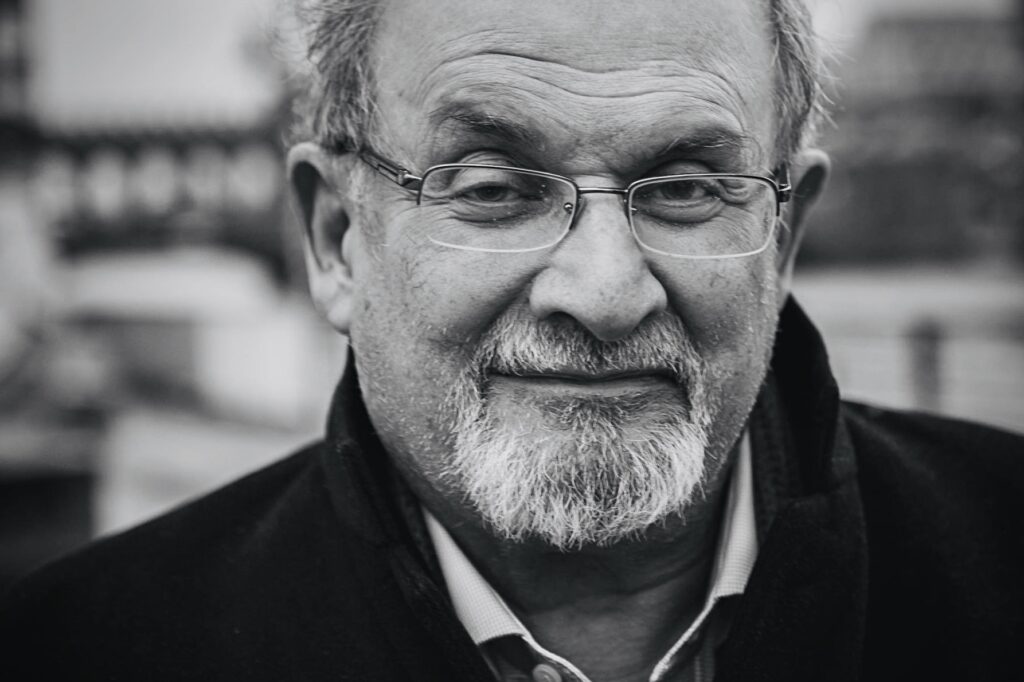
Rushdie also examines the oppression of women under tradition and religion and, in Pampa, gives us a great tragic heroine of resistance to such oppression. In Indian mythology, the goddess Parvati is the reincarnation of Sati, the first wife of Shiva, who sacrificed herself in flames to protect her husband’s honour (hence the name of the old Hindu practice of widow burning, sati or suttee). The mission Parvati gives to Pampa in the novel is a direct repudiation of this practice: why should women have to burn in the name of male honour?
Rushdie’s Parvati has come to oppose her own mythology, and perhaps Pampa’s Jayaparajaya can be read as a female-centred, even feminist, addition to (and subversion of) the canonical texts. Pampa Kampana is emphatically not the Sita of the Ramayana, whose story consists of being a damsel-in-distress and who must constantly prove her purity to men. Today, when the women of Afghanistan are once more enslaved and abused by the Taliban and the women (and men) of Iran are being beaten and killed for championing female emancipation, this theme is all too relevant.
Even the magic and the gods and the miracles of Victory City must give way to the all too human, as another goddess tells the exiled Pampa:
‘The moment is near when the gods must retreat from the world and stop interfering in its history. Very soon human beings…will have to learn to manage without us and make their stories on their own.’
This echoes Rushdie’s point about fantastical fiction being a way to view the real world aslant.
As Bisnaga falls, its people realise that their only hope is each other:
‘[They] understood for the first time that no wall would save them if there were not human beings upon them; that in the end the salvation of human beings came from other human beings and not from things, no matter how large and imposing – and even magical – those things might be.’
Without gods and magic walls, we are left with only the human. For Rushdie, the most human of human activities is storytelling. The final lines of Victory City are given to Pampa Kampana as she dies. Her last verses tell us that kings and empires and great deeds are all just dust in the great expanse of history, and that ‘I myself am nothing now. All that remains is this city of words./Words are the only victors.’
And that is the final and greatest lesson of the novel. Forget all the politics, scheming and divine intervention: none of it really matters. All that matters are the words; all that matters is the story. Literature is here set against temporal and spiritual power—and, ultimately, wins. The exile and the outcast outlast their oppressors, even if the oppressors triumph in the short term.
Should this seem an overly optimistic conclusion, consider Ovid, whom Rushdie has elsewhere cited as an exemplar of such a long-term victory. Ovid was banished from Rome by the Emperor Augustus to Tomis on the Black Sea in AD 8. In this backwater, he died forgotten. Yet he continued to write poetry that would survive to this day. In comparison, the glory of the Roman Empire seems short-lived. Or take the poetry of Federico García Lorca, which has outlasted the ideology of the Spanish fascists who murdered him; or the works of imprisoned and exiled dissidents like Serge and Solzhenitsyn, which have outlived the Soviet Union. Victory and defeat, indeed.
Bisnaga falls and Pampa dies, but through her words both her story and the highest ideals of Bisnaga, realised only partially and temporarily in her own lifetime, can continue to live and breathe and inspire. In Victory City, Rushdie shows us the triumph of love, life and literature against philistinism, death and fanaticism. When Pampa Kampana is blinded for a perceived betrayal by Krishnadevaraya, the last great king of Bisnaga, she is slowly restored by the power of telling her own story—the power of words:
‘She began to feel her selfhood returning as she wrote… She could not describe herself as happy – happiness, she felt, had moved out of her vicinity forever – but as she wrote she came closer to the new place where it had taken up residence than at any other time…’
She then begins hearing the ‘whispers’ of the people of Bisnaga, in a reversal of her own ‘whispering’, long ago, to them:
‘They brought the world back to her and took her back into the world. There was nothing to be done about the blindness but now it was more than just darkness, it was filled with people, their faces, their hopes, their fears, their lives… [N]ow, little by little, the whispered secrets of the city allowed joy to be reborn, in the birth of a child, in the building of a home, in the heart of loving families she had never met; in the shoeing of a horse, the ripening of fruits in their orchards, the richness of the harvest. Yes, she reminded herself, terrible things happened, a terrible thing had happened to her, but life on earth was still bountiful, still plenteous, still good. She might be blind, but she could see that there was light.’
Rushdie himself lost an eye to his attacker last year. Yet like Pampa, the power of his imagination and his love of the world survive. Like Pampa, he knows the horrors of this world, but also its goodness, and he can see the light, too. Even if his assassin had succeeded in murdering him, Rushdie’s words would, and will, live on and would – and almost certainly will – outlast the theocratic Iranian regime that has for so long tried and failed to still his tongue. It is a pleasing irony of history that, not long after the attack on Rushdie, the Islamic Republic brought what might just be its final reckoning upon itself with another thuggish assault, this time resulting in the murder of a woman, Mahsa Amini, for not wearing the hijab in accordance with its repressive rules.
Victory City is a literary victory, and a great one at that. In an interview with David Remnick of The New Yorker this February, Rushdie expressed his wish that the novel not be seen through the lens of the attack against him. Instead, he wants ‘[readers] to be captured by the tale, to be carried away.’ In this, he has succeeded magnificently.
But it is also appropriate that so many of Victory City’s themes perfectly rebuke those who would see its author silenced or dead. Rushdie’s long resistance to tyranny, his resilience in the face of horrific violence, and his unswerving commitment to liberty and free expression are triumphs of humanism. In other words, Salman Rushdie is a victor, too.
Victory City, by Salman Rushdie (Jonathan Cape, pp 352), will be published on 9 February 2023.
Enjoy this article? Subscribe to our free fortnightly newsletter for the latest updates on freethought.


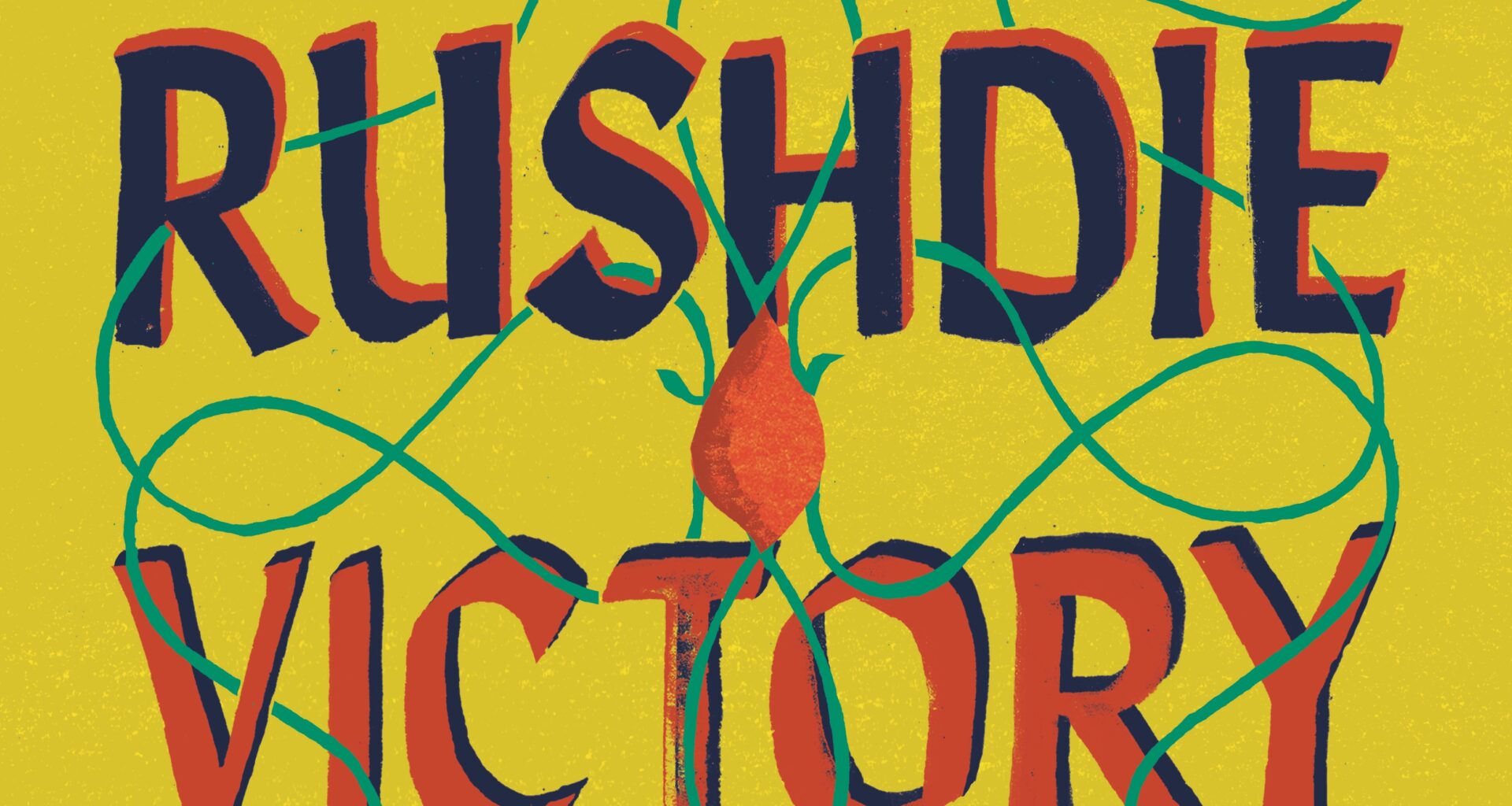

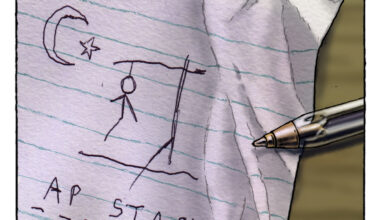

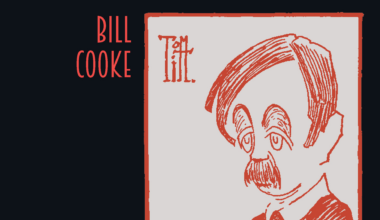

1 comment
Great review from Daniel Sharp. Helps me to identify the underlying themes that would aid the reader and provide some direction while navigating the text. Nice concluding remarks about Salman Rushdie “In other words, Rushdie is a victor too”.
Your email address will not be published. Comments are subject to our Community Guidelines. Required fields are marked *
Donate